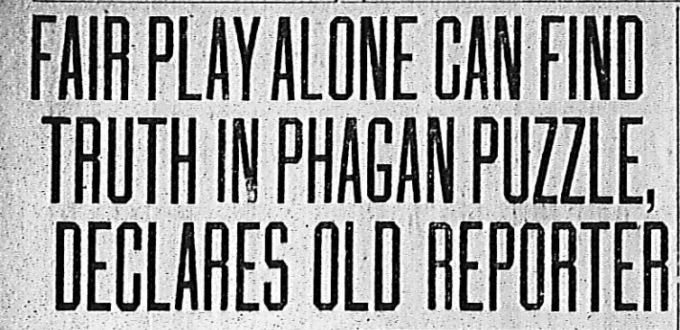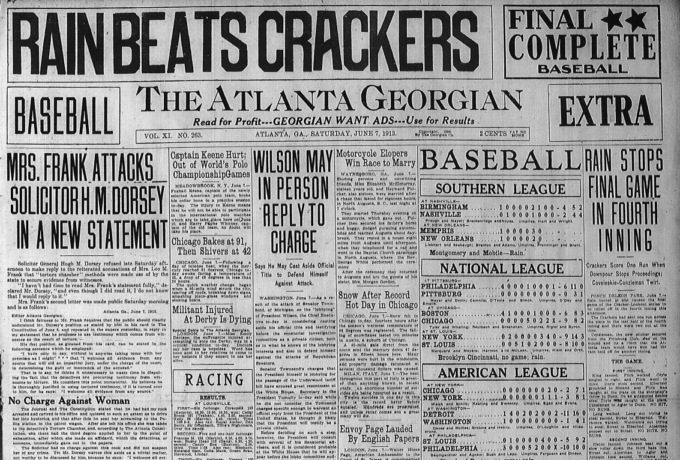 Another in our series of new transcriptions of contemporary articles on the Leo Frank case.
Another in our series of new transcriptions of contemporary articles on the Leo Frank case.
The Atlanta Journal
Monday, June 16, 1913
Attorney Associated With Prosecution, Says State Is Ready for Frank Trial
With Solicitor General Dorsey away on a short vacation, the state’s case against Leo M. Frank, who is charged with the murder of Mary Phagan, is now in charge of Frank A. Hooper, the well known attorney, who is associated with the solicitor.
“The state’s case is complete,” Mr. Hooper said Monday morning, “and we are waiting quietly for the trial on the 30th of the month to come.”
“If the defense will stop writing cards,” continued Mr. Hooper, “and stop having their friends write them, the public can be given a needed rest from the case until the trial.”
Mr. Hooper’s statement that the prosecution is quietly waiting for the trial on June 30 is the most authoritative announcement of the date of the trial yet made.
Solicitor General Dorsey has steadfastly refrained from any definite announcement about the time of the trial, but it has been generally understood for some time that the solicitor set the case on the court’s calendar for June 30, and it will then remain with the defense as to whether there is a postponement.
While Mr. Hooper’s name was not publicly connected with the case until Sunday, it is understood that the solicitor general has been consulting with him for several weeks, and it is said that Mr. Hooper is familiar with every phase of the investigation.
With the state’s case regarded as complete, it is said that the attorneys and detectives identified with the prosecution are now devoting their energies to preparing for any surprises the defense may spring when the case goes before the court.
It was rumored Monday that the grand jury on Tuesday would take up the case of James Conley, the negro who is a self-confessed accessory after the fact in the killing, but this rumor was without foundation. It was occasioned by an error in the issuance of subpenas. The grand jury, according to its foreman, will devote the entire session Tuesday to routine cases, which have piled up during the vice investigation.
The grand jury foreman, L. H. Beck, also denied the rumor that it had taken up any investigations of third degree work by the detectives in the Phagan or in any other case. “No such investigation is even likely,” he said.
* * *

 Another in
Another in 

 Another in
Another in  Another in
Another in  Another in
Another in  Another in
Another in  Another in
Another in  Another in
Another in  Another in
Another in  Another in
Another in 






